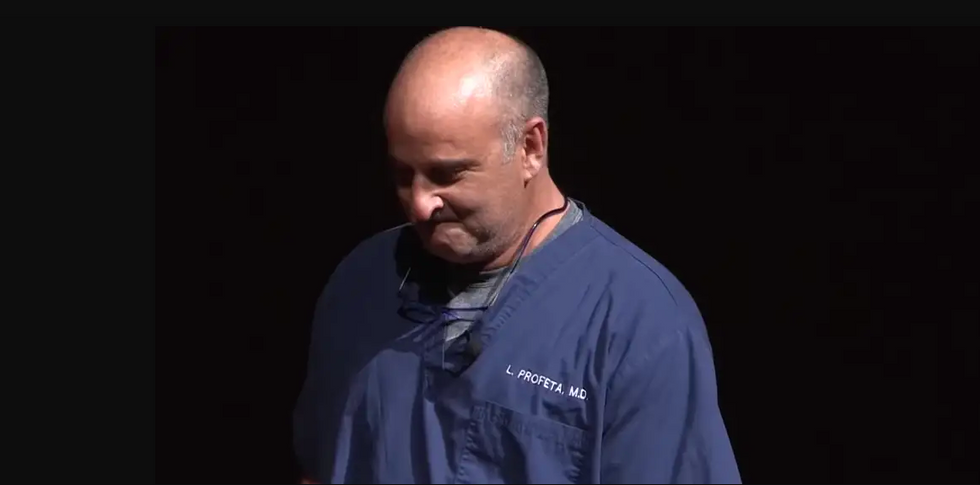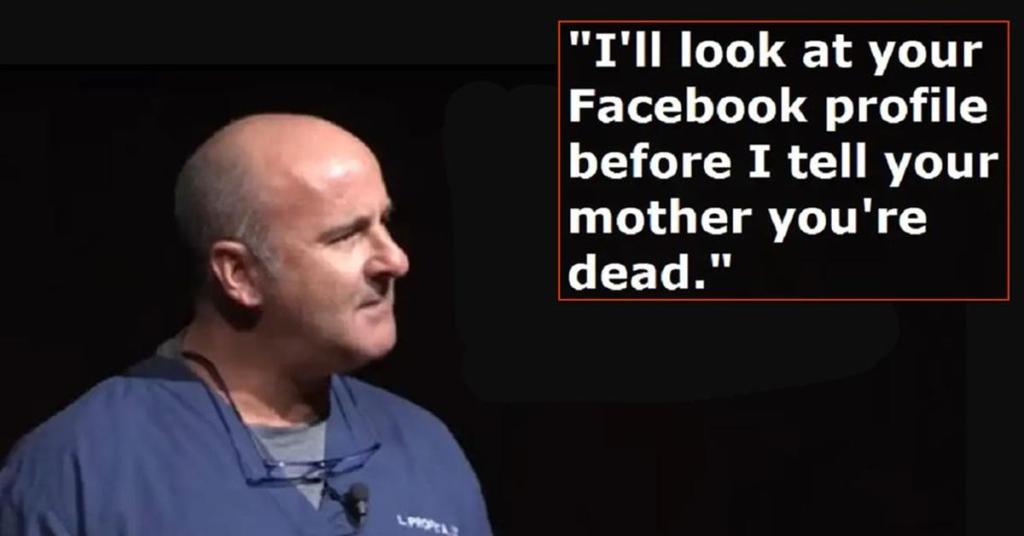Losing a loved one is easily the worst moment you’ll face in your life. But it can also affect the doctors who have to break it to a patient’s friends and family. Louis M. Profeta MD, an Emergency Physician at St. Vincent Emergency Physicians in Indianapolis, Indiana, recently took to LinkedIn to share the reason he looks at a patient’s Facebook page before telling their parents they’ve passed.
The post, titled “I’ll Look at Your Facebook Profile Before I Tell Your Mother You’re Dead,” has attracted thousands of likes and comments.
“It kind of keeps me human,” Profeta starts. “You see, I’m about to change their lives — your mom and dad, that is. In about five minutes, they will never be the same, they will never be happy again.”
“Right now, to be honest, you’re just a nameless dead body that feels like a wet bag of newspapers that we have been pounding on, sticking IV lines and tubes and needles in, trying desperately to save you. There’s no motion, no life, nothing to tell me you once had dreams or aspirations. I owe it to them to learn just a bit about you before I go in.”
“Because right now… all I am is mad at you, for what you did to yourself and what you are about to do to them. I know nothing about you. I owe it to your mom to peek inside of your once-living world.”
Profeta explains that the death of a patient makes him angry:
“Maybe you were texting instead of watching the road, or you were drunk when you should have Ubered. Perhaps you snorted heroin or Xanax for the first time or a line of coke, tried meth or popped a Vicodin at the campus party and did a couple shots.”
“Maybe you just rode your bike without a helmet or didn’t heed your parents’ warning when they asked you not to hang out with that ‘friend,’ or to be more cautious when coming to a four-way stop. Maybe you just gave up.”
“Maybe it was just your time, but chances are… it wasn’t.”
Profeta goes on to explain why he checks a patient’s Facebook page:
“So I pick up your faded picture of your driver’s license and click on my iPhone, flip to Facebook and search your name. Chances are we’ll have one mutual friend somewhere. I know a lot of people.”“I see you wearing the same necklace and earrings that now sit in a specimen cup on the counter, the same ball cap or jacket that has been split open with trauma scissors and pulled under the backboard, the lining stained with blood. Looks like you were wearing it to the U2 concert. I heard it was great.”
“I see your smile, how it should be, the color of eyes when they are filled with life, your time on the beach, blowing out candles, Christmas at Grandma’s; oh you have a Maltese, too. I see that. I see you standing with your mom and dad in front of the sign to your college. Good, I’ll know exactly who they are when I walk into the room. It makes it that much easier for me, one less question I need to ask.”
“You’re kind of lucky that you don’t have to see it. Dad screaming your name over and over, mom pulling her hair out, curled up on the floor with her hand over her head as if she’s trying to protect herself from unseen blows.”
“I check your Facebook page before I tell them you’re dead because it reminds me that I am talking about a person, someone they love — it quiets the voice in my head that is screaming at you right now shouting: ‘You mother f–ker, how could you do this to them, to people you are supposed to love!’”
This article originally appeared on June 5, 2019


































